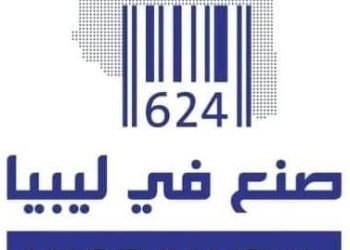By Libya Herald reporter.
Malta, 12 January 2015:
Further to the Central Bank of . . .[restrict]Libya (CBL) issuing a new set of guidelines on 1 January for the use of Libyan issued debit cards abroad, Amman bank has today announced that its Visa Electron cards are now operational abroad.
The announcement comes after the CBL and Visa had last year suspended debit cards issued by Libyan banks.
Amman bank, a private Libyan bank part owned by Portuguese BES bank, had in December offered its customers an alternative Mastercerd as a replacement for the suspended Visa debit cards.
Many Libyan customers from other banks holding Visa debit cards issued by Libyan banks were left stranded abroad after the debit cards were suspension.
The CBL had set new limits on daily, weekly, monthly and annual cash withdrawal and purchasing limits on cards used abroad. The CBL together with Visa card had suspended debit cards issued by Libyan banks due to their misuse.
In its 1 January statement, the CBL had said that it was taking action in order to prevent the ‘’exploitation’’ of debit cards and the ‘’commercial’’ use by currency ‘’traders’’ during Libya’s current economic ‘’crises’’ situation of what are ostensibly supposed to be debit cards for personal use.
The new limits set by the CBL are:
– A maximum annual spending ceiling of US $ 10,000 per debit card, or the equivalent in foreign currency.
– A daily cash withdrawal limit from ATMs of US $ 200, or the equivalent in foreign currency.
– A monthly cash withdraw limit card from ATMs of US $ 5,000 or the equivalent in foreign currency, and not to exceed the annual cash withdrawal limit of US $ 10,000.
– A daily cash withdrawal limit through POS (point of sale) of US $ 50 or the equivalent in foreign currency, is deducted from the daily balance of US $ 200.
– The debit card balance is used for the payment POS transactions for different purposes.
– Debit cards may not be issued to those under 18 years of age.
The CBL further placed the burden of legal responsibility on Libyan commercial banks if they failed to enforce these new debit card directives which are applicable from 1st January 2015 and made them liable to penalties, which it has impose from time to time in the past..
The move by the CBL comes after a surge in debit card applications and use by Libyans during the country’s current economic crises. The economic crises originated in the February 2011 revolution which ousted the Qaddafi regime.
The country has failed to reach political stability with continued fighting between militias as well as industrial actions – all keeping oil production in the hundreds of thousands of barrels per day as opposed to the 1.5 million bpd peak. The fall of international crude prices as well as the swell in the number of state sector workers has also led to a run on state finances. Hydrocarbons provide over 80 percent of Libya’s GDP.
These factors have all led to an annual deficit as well as the dwindling of Libya’s foreign currency reserves. This, in turn, has forced the CBL to reduce the amount of foreign currency it is offering commercial banks to sell to the public and Libyan business, leading to the black market foreign currency exchange rate skyrocketing.
The lack of availability of foreign currency and the rise in the black market exchange rates made the official exchange rates offered by the use of debit cards very attractive. This led to the surge in applications and use of debit cards, which enabled Libyans to not only pay for goods and services abroad and be charged in Libyan dinars in their Libyan dinar accounts in Libya, but it also allowed some to withdraw dollars in cash abroad.
One side advantage to this latest surge in use of debit cards is that it has began to enshrine the culture of using debit cards in Libya, a society that has been dominated by the use of cash. It will also hopefully help reduce the grey and black market unofficial economy and benefit the Libyan commercial sector. [/restrict]










